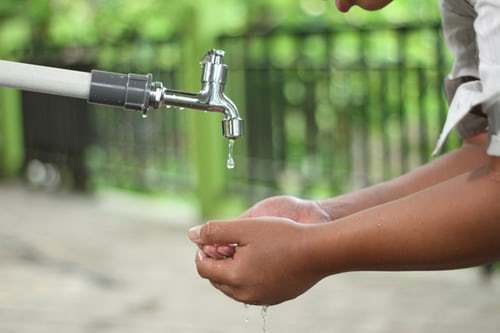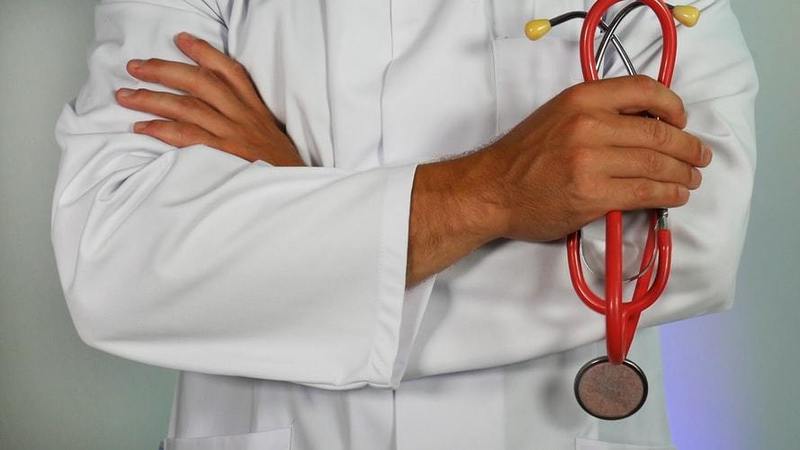
The number of confirmed cases of the Coronavirus disease 2019 (COVID-19) in the world has reached 75,748 and there are at least 2,129 fatalities, mostly in mainland China, the World Health Organization (WHO) announced on Thursday (20 February).
In Malaysia, the situation is changing for the better. The number of confirmed cases remains at 22 as of Friday morning (21 February), and of this number, 17 patients have made full recoveries and have been discharged from hospitals. As for the remaining 5, they are still receiving medical care but are already in stable condition, reported The Star citing a statement from Health Minister Datuk Seri Dr Dzulkefly Ahmad.
If you’re still worried about COVID-19 despite the improving situation in Malaysia, we listed 5 comprehensive tips that can safeguard you, your home, and your loved ones from the threat of this dreaded disease.
I. Sanitise Frequently Touched Household Objects
Your home could become a hotbed for the coronavirus if not cleaned properly, regularly. If you don’t have time for a thorough scrubbing, cleanse frequently touched objects in your home, including tables, chairs, handles, and doorknobs.
You can use a typical household cleaning spray. WHO recommends chemical disinfectants, such as chlorine/bleach-based disinfectants, ether solvents, peracetic acid, chloroform and solutions with 75 percent ethanol as these are proven to kill the COVID-19 virus lingering on surfaces.
II. Always Practice Proper Hand Hygiene

Image from: unsplash.com
You can bring COVID-19 into your home if you touch an object outside that has been exposed to the virus and you failed to rigorously clean your hands. As proper hand hygiene is your first line of defence against the disease, make it a habit to practice excellent hand washing. This is one of the most effective ways to halt the spread of diseases from one individual to another and across the community at large.
To help you, here are the correct steps in hand washing, courtesy of the US Centers for Disease Control and Prevention (CDC).
1. Let clean running water flow into your hands.
2. Turn off the faucet and use soap. Thoroughly lather the entirety of your hands with the soap, including under your nails, between your fingers, and the back of your hands.
3. Rub and lather for a minimum of 20 seconds.
4. Rinse your hands under clean running water.
5. Finally, dry your hands with a sterile towel.
If you have no access to soap and clean water, you can use a hand sanitizer with an alcohol content of at least 60 percent. However, it’s advisable to rely on soap and clean water if your hands are visibly greasy or dirty, as sanitizers don’t eliminate all germs.
To keep yourself and your family free from COVID-19, remember to wash your hands after coughing, sneezing, or blowing your nose, and during other crucial instances:
A. Before eating
B. Before, during, and after food preparation
C. Before and after treating a wound
D. Before and after caring for someone afflicted with diarrhea or vomiting
E. After using the toilet
F. After changing diapers, or cleaning a kid who used the toilet
G. After handling rubbish
H. After touching animals, their feeds and pet items, as well as after disposing their droppings.
III. Constantly Practice Good Etiquette
Remember to always cover your nose and mouth when sneezing or coughing, as the tiny droplets in the air can contaminate the area around you and infect other people. Instead of your bare hands, cover your mouth with your flexed elbow. This is because if you cough or sneeze directly into your hands, you can spread viruses and germs when you touch other people or objects.

Image from: flickr.com
Alternatively, you can sneeze or cough on a clean tissue, but throw it immediately into a trash can with a lid. After sneezing or coughing, don’t forget to wash your hands or use hand sanitizer.
Moreover, respect the personal space of other people as this can help safeguard you from the coronavirus, according to WHO. Maintain a minimum social distance of 3ft (1 metre) between yourself and other individuals, especially those who appear sick. (e.g. people sneezing or coughing, and those with fever).
The reason for this is that when people afflicted with a respiratory ailment such as COVID-19 sneezes or coughs, they expel tiny droplets into the air carrying germs. So if you’re intruding on their personal space when this happens, there is a high chance that they can infect you.
In addition, refrain from touching your mouth, eyes and nose. This is because your hands could have been in contact with things contaminated by the coronavirus. If you touch those orifices without properly washing and cleaning your hand, you can get infected.
IV. Ensure Food Safety
Adopt food safety measures when handling, preparing and storing food, as well as the kitchen utensils used. According to the UK’s Food Standards Agency, it is ideal to use a different set of knives and chopping boards for raw meat; raw fish; cooked meat; vegetables; salads & fruit; and baking ingredients & dairy.
If that’s not feasible, at least have separate knives and chopping boards for handling raw meat and cooked food, or clean the utensils thoroughly before transitioning to a different kind of ingredients. Also, properly handle milk and raw meat, particularly organs, to prevent cross-contaminating other uncooked ingredients.
Moreover, amid the COVID-19 global outbreak, health experts warn people not to share food, beverages and eating utensils, like spoons, forks, chopsticks and drinking glasses to prevent the spread of the virus.
In addition, sick animals that have perished should be buried or burned. They should not be butchered and eaten. Even in areas with the coronavirus outbreak, meat and meat products can still be safely consumed after it has been properly prepared and thoroughly cooked, so avoid eating raw or undercooked animal products.
According to the US Department of Agriculture (USDA), beef and pork should be cooked to an internal temperature of at least 145°F. The reading should come from a thermometer inserted into the thickest part of the meat not touching any bone. For ground beef and pork, these must be cooked to a higher temperature of 160°F. For chicken, turkey and other poultry products, the safe internal temperature is higher at 165°F.
Furthermore, if you need to visit a wet market or shops that sell live animals, don’t forget to practice general hygiene measures to keep yourself safe and prevent the virus from being brought into your home.
Always wash your hands after touching animals and their meat. Don’t purchase dubious agricultural products that appear unfit for eating. Don’t touch bats, birds and rodents, as well as stray cats and dogs, especially animals that look sick. Steer clear of animal waste and fluids on the market floor and other facilities.
V. Seek Medical Assistance Early If Needed

Image from: unsplash.com
People who have been exposed to COVID-19 but don’t seek medical help can worsen the outbreak, potentially affecting more people had they sought assistance from health professionals.
Thus, it is imperative that you inform healthcare personnel if you are experiencing fever, cough and shortness of breath, especially if you had travelled to China, where the disease originated, as well as other parts of the world where there are existing outbreaks of the ailment. You also need to tell if you’ve been in close contact with a person who has recently travelled to such places.
Even if it’s not related to the coronavirus, it’s still ideal to promptly consult health experts if you’re experiencing the said symptoms as there could be serious underlying medical conditions.
If the symptoms are mild and it has been confirmed that it’s not connected to COVID-19, it’s still beneficial to practice proper hand hygiene, good social etiquette and food safety. Also, don’t forget to clean your home.
If you need to stay at your house, maintain a healthy lifestyle. Eat nutritious food particularly those rich in Vitamin C and Zinc, as these are effective against the common cold. Exercise, get ample sleep and keep in touch with your family members, as the last one can stave off depression which can compromise your immune system.
Furthermore, don’t panic! Be fully informed and get your facts from a reputable source, such as the World Health Organization (WHO) and Malaysia’s Ministry of Health (MOH).
For more Guides like this, visit the PropSocial Discussion page.
(Written by G. Zizan, 27th February 2020)
